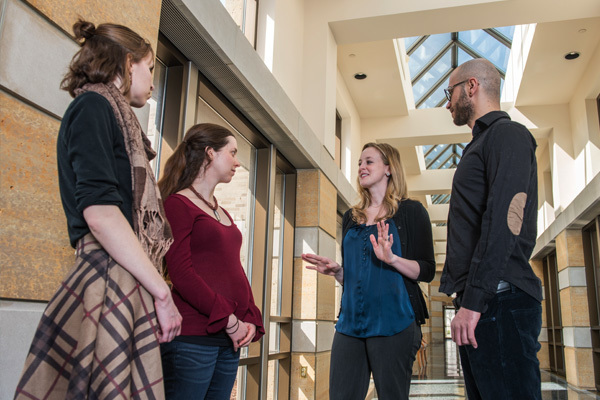Peace Studies and Psychology

How and why does political violence affect individuals, especially young people? What are the psychological implications for the continuation or mitigation of violent conflict?
The Peace Studies and Psychology program equips students with the theoretical lens and methodological tools of psychology to answer these and related questions, focusing especially on how people are affected by violence and how resilient individuals can serve as models for and active agents of change at the individual, community, and societal level. Students in the program study how exposure to intergroup threats affects mental health, aggressive behaviors, and delinquent acts; explore the constructive role that young people and practitioners can play in reconstructing communities in the wake of violence; and focus on the role of the family and community in youth development.
Research incorporates multiple methods within and across projects, including qualitative and quantitative methods. Students learn leading methodological techniques for analyzing longitudinal and multilevel data and have access to advanced statistical training. At the same time, in conducting research, Ph.D. students engage with global networks that connect them to the real-life problems faced by children, families, and communities around the world.
Peace Studies and Psychology students may concentrate in either clinical or developmental psychology.
Faculty Contact: Laura Miller-Graff, Associate Professor of Psychology & Peace Studies
Student & Alumni Testimonials
“I love having two cohorts of fellow students — one in peace studies and one in psychology. Having discussions inside and outside the classroom with people who approach problems so differently has been incredibly enriching.”
— Marie Lance, Ph.D. student in peace studies & psychology
"I’ve benefited from learning the traditional research methods of psychology, but also from taking peace studies courses with students in anthropology, theology, sociology, political science and anthropology. Learning about the tools and methods of other disciplines has led me to generate more creative questions."
— Dana Townsend, Ph.D. student in peace studies & psychology
Contact
Caroline Hughes
Director of Doctoral Studies
Kathryn Sawyer Vidrine
Assistant Director for Doctoral Studies